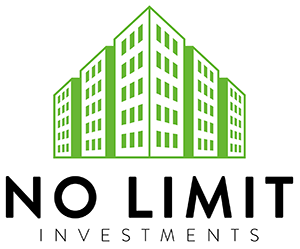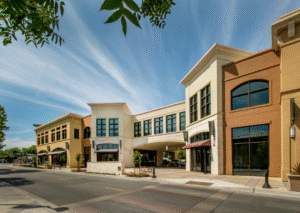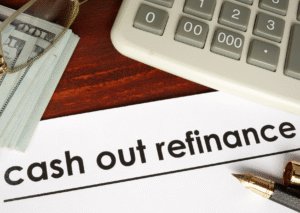What Should You Know Before Applying for a Commercial Property Mortgage?
What Is a Commercial Property Mortgage?
A commercial property mortgage is a loan used to purchase or refinance real estate that generates income or is intended for business purposes. Unlike residential mortgages, these loans apply to properties like office buildings, apartment complexes (with more than four units), retail spaces, warehouses, or industrial facilities.
Lenders often consider the potential income the property can produce when approving a commercial loan. This includes evaluating the value of the asset, the borrower’s experience, creditworthiness, and business plan. These loans are typically offered by banks, credit unions, private lenders, and specialized real estate finance firms.
How Do Commercial Mortgages Differ from Residential Mortgages?
While both types of mortgages involve borrowing money to purchase real estate, their structures, qualification criteria, and repayment terms differ significantly:
- Loan Terms: Commercial loans typically have shorter terms (5 to 20 years) compared to residential loans (up to 30 years).
- Interest Rates: Commercial mortgage rates are usually higher, reflecting the greater risk to lenders.
- Down Payment: Commercial loans often require a higher down payment (20%-30%).
- Property Use: Commercial loans are used for income-generating or operational properties, not personal residences.
- Loan Approval: The approval process often evaluates both the borrower and the property’s ability to generate income.
Understanding these differences is crucial for borrowers transitioning from residential to commercial real estate investments.
What Are the Common Types of Commercial Property Mortgages?
Depending on your goals and the type of property, several financing options are available:
- Traditional Bank Loans: These are long-term loans provided by banks and credit unions. They’re ideal for stable businesses with strong credit histories.
- SBA Loans: The Small Business Administration offers 7(a) and 504 loans for owner-occupied properties.
- Bridge Loans: Short-term loans designed to “bridge” the gap until permanent financing is secured.
- Hard Money Loans: Based on asset value rather than borrower credit, these loans are quick to close but come with higher interest rates.
- DSCR Loans: Debt-Service Coverage Ratio loans focus on the income potential of the property instead of personal income.
Each loan type serves different needs. No Limit Investments, for example, offers DSCR loans, bridge financing, and fix-and-flip loans tailored to investor strategies.
What Are the Basic Requirements for Securing a Commercial Mortgage?
Lenders look at various criteria when approving a commercial property mortgage:
- Credit Score: A strong personal and business credit score is essential.
- Down Payment: Usually between 20%-30% of the property’s value.
- Loan-to-Value Ratio (LTV): Most lenders prefer an LTV of 70%-80%.
- Debt-Service Coverage Ratio (DSCR): A DSCR above 1.25 is ideal.
- Business Financials: Lenders will require recent tax returns, profit and loss statements, and balance sheets.
- Property Appraisal: Ensures the property is worth the loan amount.
Investors should work with professionals like No Limit Investments to assess their financial readiness and gather the necessary documentation.
How Does the Loan Application and Underwriting Process Work?
Securing a commercial mortgage involves multiple steps:
- Prequalification: Initial evaluation of borrower qualifications.
- Loan Proposal: Submission of a detailed plan including property details, income projections, and borrower information.
- Underwriting: Lenders analyze financials, credit, property income, and collateral.
- Approval & Closing: Upon approval, legal documents are signed, and the loan is funded.
This process can take several weeks, especially if the loan involves complex underwriting or multiple parties. Working with a knowledgeable team such as No Limit Investments can simplify this timeline by providing expert loan packaging and advocacy.
What Are the Risks and Challenges of Commercial Property Mortgages?
Investing in commercial property is rewarding but comes with risks:
- Market Volatility: A decline in rental demand or economic downturn can affect returns.
- Vacancy Rates: Unlike residential properties, commercial units may remain vacant longer.
- Maintenance and Management Costs: Commercial properties often require higher upkeep.
- Higher Default Risk: Due to loan sizes and payment terms, the risk to lenders and borrowers is elevated.
Mitigating these risks involves thorough due diligence, conservative cash flow analysis, and choosing flexible lenders like No Limit Investments who provide advisory and risk management support.
How Can You Strategically Use a Commercial Property Mortgage?
A commercial property mortgage can be a powerful wealth-building tool when used strategically. Consider these tactics:
- Cash-Out Refinancing: Tap into built-up equity to reinvest in other properties.
- BRRRR Strategy: Buy, Rehab, Rent, Refinance, Repeat—great for long-term wealth.
- Portfolio Diversification: Expand into different property types or geographic areas.
- Value-Add Projects: Improve underperforming properties to boost income and value.
No Limit Investments helps clients apply these strategies through tailored loans such as fix-and-flip, construction loans, and BRRRR financing solutions.
What Services Can Support Your Commercial Mortgage Journey?
In addition to financing, borrowers often need consulting and support services. No Limit Investments offers a comprehensive suite, including:
- Investment Market Insights: Learn where and what to invest in.
- ROI and Cash Flow Analysis: Understand the returns before you buy.
- Credit and Debt Advisory: Improve your financial profile for better terms.
- Growth and Development Consulting: Scale smart with expert guidance.
These services empower real estate investors to make data-driven, strategic decisions and avoid costly mistakes.
What Should You Watch Out for in Loan Terms and Conditions?
Always review your loan documents carefully. Look for:
- Prepayment Penalties: Fees for paying off the loan early.
- Balloon Payments: A large sum due at the end of a short-term loan.
- Variable Interest Rates: Payments may increase if rates rise.
- Loan Covenants: Specific financial conditions you must maintain.
Choosing a lender like No Limit Investments, which provides transparency and borrower education, can help you avoid hidden pitfalls and make informed decisions.
Why Should You Work with a Specialized Real Estate Lending Partner?
Navigating the commercial mortgage world is complex. Specialized lenders bring value through:
- Industry Knowledge: They understand your market.
- Flexible Underwriting: Ideal for investors and entrepreneurs.
- Tailored Loan Products: Solutions like DSCR loans, bridge financing, and construction loans.
- Speed and Support: Faster funding and hands-on help throughout the process.
No Limit Investments provides all of the above, serving investors in all 50 states. Whether you’re a seasoned investor or just starting out, their personalized support and investor-friendly terms can be the difference-maker.
Ready to Take the Next Step?

If you’re serious about growing your real estate portfolio, securing the right commercial property mortgage is essential. Don’t navigate the complexities alone.
Contact No Limit Investments today to access customized loan solutions, strategic guidance, and a partner committed to your success. Whether it’s your first property or your fiftieth, their team is ready to help you scale smart, finance wisely, and invest without limits.
Final Thoughts
Understanding the landscape of commercial property mortgages is key to long-term success in real estate investing. From choosing the right loan product to evaluating risks and maximizing returns, each step requires careful planning and smart decision-making. With the right knowledge and the support of an experienced partner like No Limit Investments, you can confidently pursue your investment goals and build a portfolio designed for generational wealth.
Works Cited
“Commercial Real Estate Loans.” U.S. Small Business Administration, www.sba.gov/funding-programs/loans. Accessed 1 Aug. 2025.
“Understanding Commercial Mortgages.” Investopedia, www.investopedia.com/terms/c/commercial-mortgage.asp. Accessed 1 Aug. 2025.
“DSCR Loans: What Real Estate Investors Need to Know.” Forbes Advisor, www.forbes.com. Accessed 1 Aug. 2025.
“Real Estate Loan Types.” No Limit Investments, https://nolimitinvestments.net/services/. Accessed 1 Aug. 2025.
“Commercial Property Financing Guide.” National Association of Realtors, www.nar.realtor. Accessed 1 Aug. 2025.
“What Is a Bridge Loan?” NerdWallet, www.nerdwallet.com. Accessed 1 Aug. 2025.
Frequently Asked Questions
- What is the difference between a commercial and residential mortgage?
A commercial mortgage is used to finance income-producing properties like office buildings or retail spaces, while a residential mortgage is for personal living spaces. Commercial loans typically have shorter terms, higher interest rates, and stricter qualification requirements.
- What credit score do I need for a commercial property mortgage?
Most lenders require a strong personal and business credit score, often 660 or higher. However, qualifications vary depending on the lender and loan type. DSCR loans, for example, may focus more on the property’s income than personal credit.
- How much down payment is typically required for a commercial mortgage?
Down payments usually range from 20% to 30% of the property’s value. The exact amount depends on factors like loan type, property risk, and borrower financials.
- What is a DSCR loan, and how does it work?
A DSCR (Debt-Service Coverage Ratio) loan evaluates whether a property’s income can cover its debt obligations. Lenders typically want to see a DSCR of 1.25 or higher, meaning the property generates at least 25% more income than needed to repay the loan.
- What services does No Limit Investments offer to help with commercial mortgages?
No Limit Investments offers fix-and-flip loans, DSCR financing, BRRRR strategy funding, cash-out refinancing, and construction loans. They also provide ROI analysis, business credit advisory, and consulting services to help real estate investors make smart, informed decisions.







